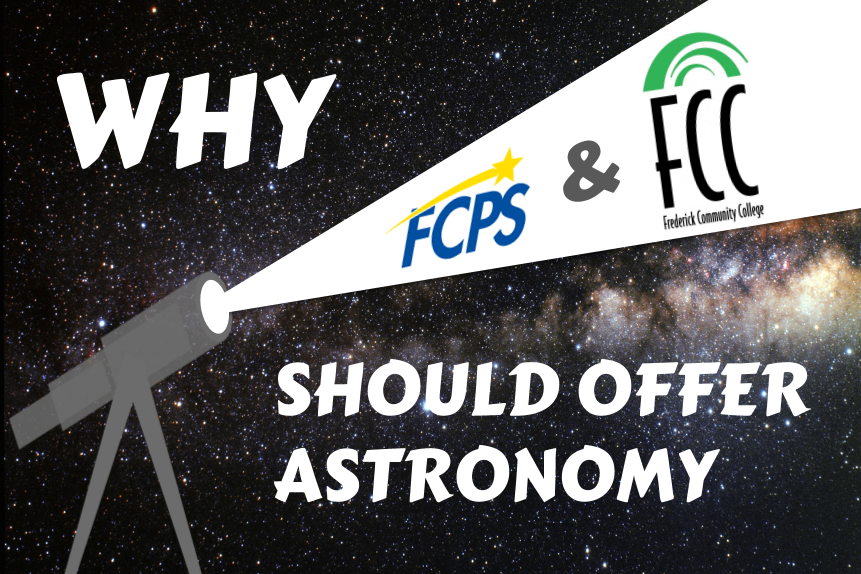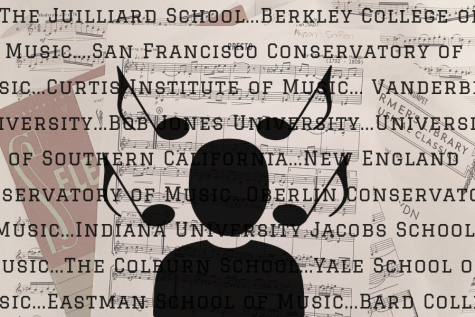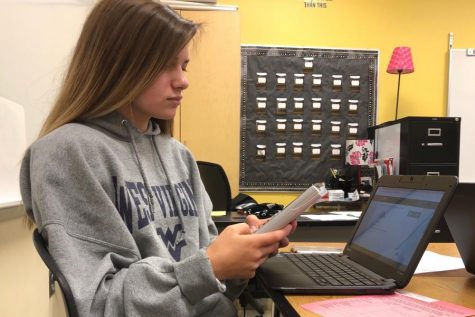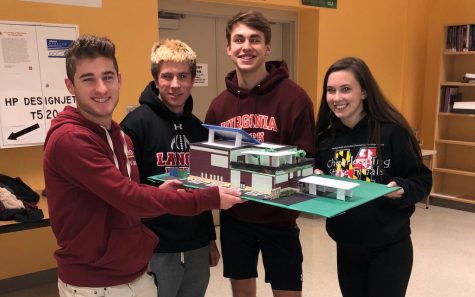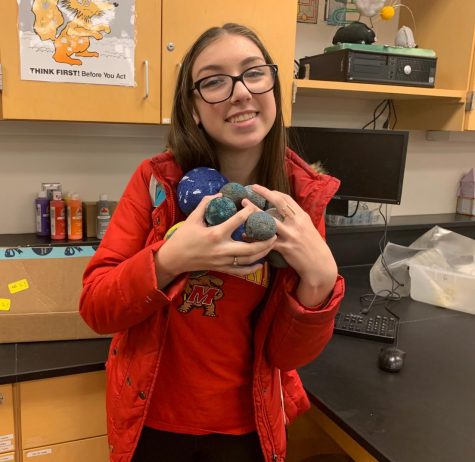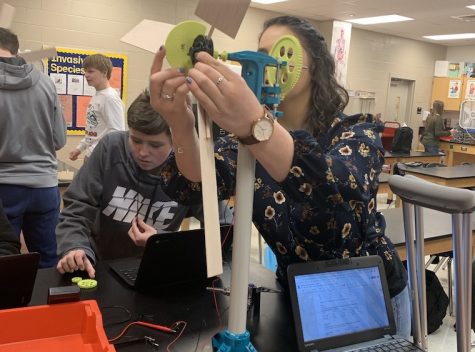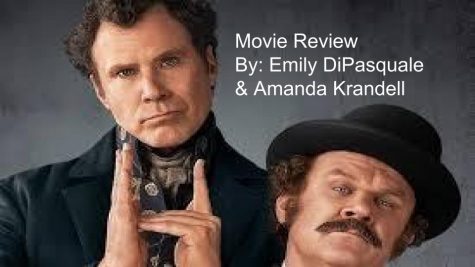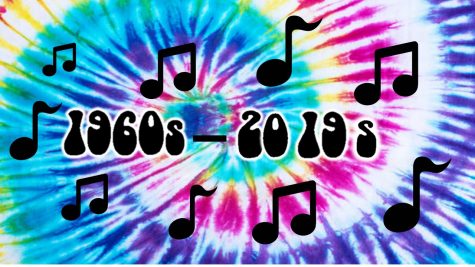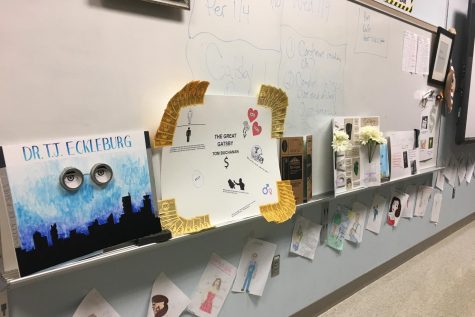Dual enrollment astronomy course would be an out-of-this-world opportunity
Could astronomy be the science of the future for FCPS?
December 17, 2018
To confine our attention to terrestrial matters would be to limit the human spirit. — Stephen Hawking
Hawking’s ideas about the study of astronomy apply to Frederick County Public Schools.
There are three science course requirements that every high school student in Frederick County must fulfill: physics, biology, and chemistry. These three science courses all center around terrestrial matters; that is, the Earth. In a physics class, students may learn briefly about Kepler or Einstein, but there is no class at FCPS that allows students to study the universe beyond our tiny planet. The human spirit of FCPS, as Stephen Hawking would say, is being “limited.”
Fortunately, there is a solution to this limitation: Frederick Community College (FCC) is already offering an astronomy course. However, to take this class, high school students would have to find the time, money, and transportation necessary to take the course at FCC. So what’s the solution to all of these problems?
Offer a high school based astronomy course through dual enrollment.
Dual enrollment is a program through which high school students are able to take college courses (offered through FCC) at their high schools. In the future, this program will reach to establish an Early College program, similar to the one offered at Montgomery College.
FCC and FCPS are working together to offer an opportunity for students to earn associate degrees before they graduate high school.
Elizabeth Duffy, the Executive Director for Dual Enrollment at FCC, said, “There is a workgroup with employees of both FCC and FCPS discussing how an Early College could be established.” Duffy said that, ideally, the first cohort of this program would begin in fall 2020.
If this program is successful, students who wish to pursue associate degrees may have to earn general education college credits, as they would at a regular college. These required credits often include natural science credits, such as astronomy. Therefore, offering an astronomy through dual enrollment would satisfy a science requirement for students interested in this Early College opportunity.
This course would also be accessible to students who haven’t yet taken higher level math courses because, in a basic astronomy course, most of the math is based on simple algebraic concepts.
Another reason to offer an astronomy class at FCPS is to keep children and young adults interested in science.
Lisa Bruck, one of the directors of the Earth Space Science Lab (ESSL) in Frederick, said, “Children need to understand the workings of the world around them. In order to innovate, and move forward we have to give children the tools to be creative and ask the right questions,” said Bruck.
The purpose of the ESSL is to “provide a curriculum related experience for elementary students grades 1-5,” said Bruck. Its primary focus is on teaching and engaging elementary school students. While the ESSL does offer monthly programs open to the community, institutions like this one commonly only focus on younger children.
The key to engaging teenagers in science is, according to Bruck, relevance.
She said, “You need to make sure they understand how new technologies and understandings of the workings of the world around them will better their life now and in their future.”
Physics teacher Christopher Hahn said, “Science is important for teenagers because I want them as adults to have a scientific background for decision making.” While Hahn doesn’t necessarily believe that scientific knowledge is more or less important than any other area of knowledge, he still believes it is important to develop science literacy so that students are more well-rounded.
Astronomy as a subject is a more important science than most people give it credit for. George Sherwood, an astronomy professor at Frederick Community College, said, “Understanding astronomy is a key part in understanding the world and universe that we live in.”
“I enjoy teaching and learning about astronomy because so much is happening now – new space missions, new telescopes, [and] new information,” said Sherwood.
A notable recent astronomy mission that occurred on November 26, 2018 was the successful landing of the spacecraft Insight on Mars. The purpose of Insight is to determine the makeup of Mars’ core, investigate the possibility of seismic activity on the planet (dubbed “marsquakes”), and use a drill to measure Mars’ interior heat. This mission represents humanity taking one step further into the unknown frontier of space.
Further space exploration could bring humanity more than knowledge of the unknown, however; Sherwood said that outer space and other planets could provide more living space and sources of rare, essential resources (such as those found in asteroids) for humankind.
Studying astronomy also ties into life on Earth more than most people think. NASA has a list of technologies that were initially designed for space exploration but are now used on Earth. These technologies are known as “spinoffs”, and they include a virtual runway for training pilots, an AI “brain” for self-driving cars, and software for predicting crop yields based on NASA space imaging.
Having an astronomy course available for high school students could improve their futures and the future of humankind.
Sherwood said, “Astronomy is one of many courses that students should take to better understand the world we live in. It fits in well with other courses, especially physics, and helps us better understand what we learn in those courses.” An astronomy course would not only offer a view of the universe unparalleled in current courses in FCPS, it would allow students to develop a greater understanding of science and mathematics courses that FCPS currently offers.
According to a poll posted on The Lance’s twitter, 53% of Linganore students would be interested in taking an astronomy course if one were offered.
Bruck said, “What we have learned over the 25 years of Hubble, and ISS, many other spacecraft, is how much we do NOT know.” By encouraging students to pursue astronomy by offering a course through dual enrollment, FCPS would be setting students up to make greater strides in humanity’s understanding of the universe than ever before.


